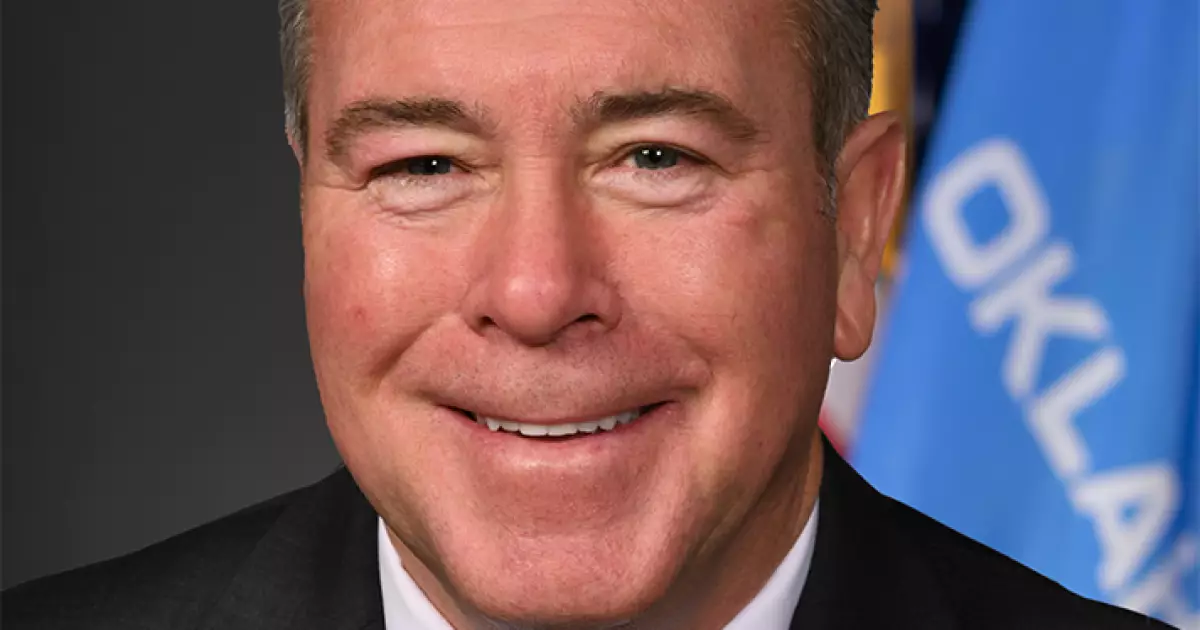In Oklahoma, a fierce political battle has erupted, prominently featuring Attorney General Gentner Drummond and State Treasurer Todd Russ. This clash is not merely about policy; it symbolizes a deeper conflict over the authority and responsibilities attributed to each office under the state constitution. On the surface, the contention appears focused on a specific anti-Environmental, Social, and Governance (ESG) law; however, it has expanded to include accusations of constitutional overreach, power grabs, and the integrity of the state’s fiscal management. With emotions running high, it is imperative to evaluate the implications of this feud, particularly how it illustrates the ongoing tension between government branches and the potential ramifications of consolidation of power.
An Allegation of Power Consolidation
At the crux of the disagreement is a daunting accusation—Russ claims that Drummond has overstepped his bounds by “crossing constitutional lanes of government.” This critique hints at the perpetual tension embedded within the separation of powers doctrine. Russ contends that Drummond’s actions threaten the constitutional authority of the Treasurer, one that is entrusted with safeguarding Oklahoma’s financial assets. Such a claim cannot be dismissed lightly; it signals underlying risks associated with unchecked power, especially as Drummond prepares for a gubernatorial bid.
His staunch defense of state interests positions him as a protector of conservative values, ostensibly seeking to shield Oklahoma from “radical leftist” influences. However, the broader question remains: does this protectiveness mask a dangerous centralization of power that could undermine the checks and balances vital to democratic governance? Drummond’s dismissal of the treasurer’s allegations as “total garbage” reflects not only a robust defense of his position but also highlights a troubling tendency among politicians to dismiss legitimate scrutiny in the pursuit of power.
Defending Oklahoma’s Interests or Playing Politics?
Drummond’s assertions about protecting the oil and gas industry—Oklahoma’s economic backbone—against ESG investing have educational impacts far beyond fiscal rhetoric. This confrontation is emblematic of a growing narrative among certain conservative factions: the portrayal of financial institutions as enemies of traditional American values. By branding BlackRock and similar firms as part of a “radical leftist agenda,” Drummond frames the debate in stark ideological terms, reducing a multifaceted conversation about investment strategies and social responsibility to mere partisan squabbles.
Interestingly, the narrative is complicated by claims that Drummond initially hesitated to defend the Energy Discrimination Elimination Act, only later to exhibit ties with investment firms like BlackRock. Such involvement raises questions about the sincerity of his motives. Are his actions genuinely in the best interest of Oklahoma, or are they politically motivated maneuvers with an eye on future elections?
Risking Governor’s Legacy Over Personal Ambitions
The implications of this feud extend well beyond the current leaders and pose a far-reaching risk to the legacy of Oklahoma’s governance. The notion that legislative processes could devolve into a gladiatorial contest over individual ambitions suggests a fracturing state leadership that prioritizes personal gain over collective well-being. Russ’s assertion that a failed legislative attempt sought to transfer authority from his office to Drummond’s is concerning. Such moves could jeopardize the ground-up accountability that local voters expect.
Moreover, the concept of a single office controlling the enforcement of financial regulations summons fears of institutional recklessness. The potential shift in power could distort fiscal decision-making, steering it toward politically expedient choices rather than sound fiscal policies. The voters who placed their trust in these officials might be left feeling betrayed if governance devolves into a contest of supremacy rather than collaboration.
A Cautionary Tale on Governance
At its core, the Oklahoma state treasure and attorney general dispute is a cautionary tale of governance in a polarized age. The increasing intensity of political conflicts can obscure the foundational principles of representative democracy. When public servants focus on consolidating power, they risk diluting the very values they profess to uphold. Understanding the stakes here is essential not merely for Oklahomans, but for citizens across the nation observing a similar struggle for power and influence. In this politically charged landscape, the call for accountability and transparency is more crucial than ever, as is the need for a commitment to the enduring principles that bind the very fabric of democratic governance.

